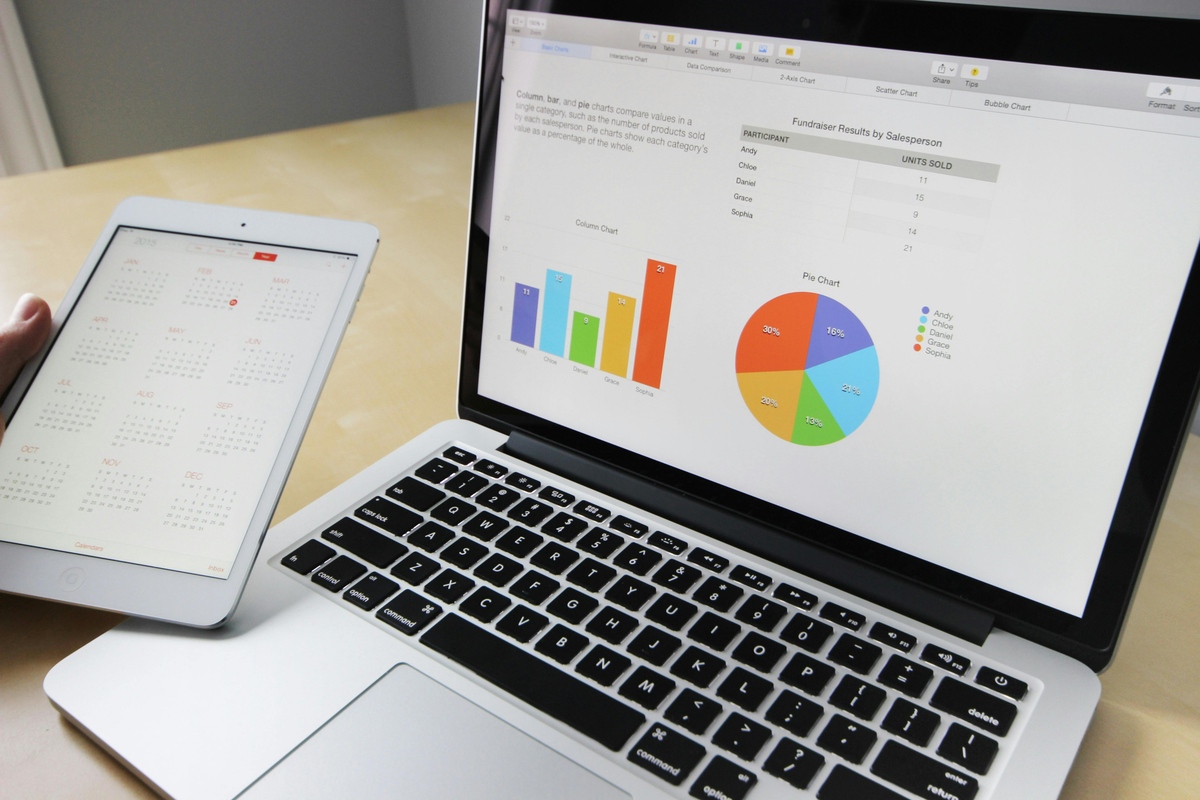Industrial Tablet PC Market: Trends, Growth Drivers, and Future Prospects

The Industrial Tablet PC Market has seen notable growth over the past few years, evolving in line with digital transformation across industries. Industrial tablets, rugged and equipped for high performance in demanding environments, are increasingly vital in sectors like manufacturing, healthcare, logistics, oil and gas, and construction. Unlike standard consumer tablets, industrial tablet PCs are built to withstand extreme conditions, from intense temperatures and moisture exposure to shocks and vibrations, making them essential tools for a wide range of applications. This blog will explore the key trends, growth factors, and anticipated future developments in the Industrial Tablet PC market.
Market Overview and Size Industrial Tablet PC Market
Industrial Tablet PCs have evolved beyond niche applications to become central to numerous industries’ operations. According to industry reports, the market was valued at approximately $2 billion in 2023, with a compound annual growth rate (CAGR) projected at around 8% through 2030. The rapid expansion is fueled by the increasing adoption of automation, the need for real-time data tracking, and the growing reliance on digital tools across industrial environments.
Key Features and Differentiators of Industrial Tablets
Industrial tablets are distinct from regular tablets due to their robust, durable designs and specialized features tailored for specific industrial uses. Some of the critical features of these devices include:
Ruggedness and Durability: Industrial tablets are designed to resist damage from extreme conditions. They are often waterproof, dustproof, and shock-resistant, making them ideal for outdoor and factory-floor use. Many meet military-grade standards for durability, such as MIL-STD-810G, which ensures they can withstand drops, vibrations, and even harsh weather conditions.
High Performance and Reliability: Industrial tablets come with powerful processors and high battery capacities, designed to support continuous operation across long shifts and to handle complex industrial software applications.
Customizability: Industrial tablets are highly customizable, with options for specialized ports, hot-swappable batteries, or unique hardware like barcode scanners, RFID, and NFC readers, making them versatile for a range of tasks in fields such as inventory management and equipment monitoring.
Enhanced Security: Security is a crucial factor for companies managing sensitive data. Industrial tablets often feature advanced encryption, biometric security options, and software designed to secure data, ensuring compliance with regulatory standards in sectors like healthcare and finance.
Key Market Segments
The Industrial Tablet PC market can be segmented based on type, operating system, industry application, and region.
By Type: Industrial tablets are available in two main categories – fully rugged and semi-rugged. Fully rugged tablets are designed for the most extreme environments, while semi-rugged tablets offer a balance between durability and affordability, suited for less demanding applications.
By Operating System: Most industrial tablets run on either Windows or Android, though some also operate on iOS. Windows-based tablets are popular for legacy integration in industries such as manufacturing, while Android tablets offer greater flexibility and ease of use in applications like logistics and inventory tracking.
By Application: Industrial tablets serve multiple applications, from manufacturing (used on assembly lines for quality control) to healthcare (for patient data management) and field services (for tracking assets and performing diagnostics).
By Region: North America, Europe, Asia-Pacific, Latin America, and the Middle East & Africa are all significant markets for industrial tablets, with North America and Asia-Pacific leading in market share due to advanced manufacturing sectors and high-tech industries.
Trends Shaping the Industrial Tablet PC Market
Several trends are driving growth in the Industrial Tablet PC market, reflecting the ongoing digitalization of industries worldwide:
The Rise of IoT and Industry 4.0: Industrial tablets are crucial in Industry 4.0 environments, where smart manufacturing and IoT-based monitoring are essential. Equipped with IoT connectivity and advanced data processing capabilities, these tablets allow for real-time machinery, production lines, and supply chain monitoring, helping businesses enhance operational efficiency and make data-driven decisions.
Demand for Mobility and Flexibility: As industries become more connected, the need for mobile, high-performance devices is growing. Industrial tablets offer flexibility, allowing workers to access and input data from anywhere on the factory floor or field, significantly enhancing productivity and reducing downtime.
Focus on Workplace Safety: With increasing emphasis on safety in industrial settings, rugged tablets are used for safety inspections, compliance tracking, and hazard management. Some models even offer thermal imaging capabilities to help identify overheating equipment or potential hazards.
Advances in Battery Life and Power Management: Industrial applications require long-lasting power to support multi-shift operations. The development of more efficient batteries and power-saving technologies in industrial tablets ensures they can perform reliably over extended periods, reducing the need for frequent recharges and minimizing downtime.
Advancements in Software Compatibility and Cloud Integration: Industrial tablets are now more compatible with sophisticated software solutions and cloud services, enabling seamless data sharing and integration with enterprise systems. This integration is critical for industries where real-time data and predictive analytics drive decision-making.
Key Players in the Industrial Tablet PC Market
Leading players in the market include Panasonic, Zebra Technologies, Getac, Honeywell, Dell, Xplore Technologies, and Advantech. These companies continue to innovate, focusing on enhancing durability, expanding the scope of customization, and improving software compatibility for specific industries.
Panasonic: Known for its Toughbook series, Panasonic provides tablets widely used in industries where reliability and ruggedness are essential. The Toughbook series has set a benchmark for durability, high performance, and security.
Zebra Technologies: Zebra’s rugged tablets are optimized for use in logistics, retail, and healthcare, offering features such as integrated scanners and connectivity with enterprise management systems.
Getac: Getac specializes in fully rugged tablets, providing solutions with excellent durability for sectors such as defense and public safety.
Challenges and Limitations
While the Industrial Tablet PC market shows robust growth, it faces several challenges:
High Cost: Industrial tablets are significantly more expensive than consumer-grade tablets due to their durability and specialized features. This can be a barrier, particularly for small to medium-sized businesses with limited budgets.
Complex Software Integration: Many industries operate on legacy systems that may not integrate easily with new devices. Ensuring compatibility with older systems and seamless integration with enterprise software can be a challenge.
Device Management and Maintenance: Industrial tablets require regular updates, security management, and maintenance. For businesses without dedicated IT support, managing these tasks can be complex and resource-intensive.
Market Saturation in Developed Regions: In developed markets, the adoption of industrial tablets is high, and as a result, growth may slow as the market reaches saturation. However, emerging markets still offer considerable growth potential.
Future Outlook
The future of the Industrial Tablet PC market looks promising, with expanding applications in sectors that continue to embrace digital transformation. As more industries adopt IoT and smart manufacturing practices, the demand for rugged, mobile, and high-performance tablets is expected to increase. Developments in 5G and AI may further enhance these devices, improving connectivity, data processing capabilities, and support for complex applications.
Sustainability is also expected to play a more significant role, with manufacturers focusing on eco-friendly designs and recycling programs to reduce environmental impact. As the market grows, there may also be greater emphasis on affordability and flexible leasing options, making industrial tablets more accessible to a broader range of businesses.
Conclusion
The Industrial Tablet PC market is a dynamic and evolving segment, driven by technological advancements and the growing need for robust digital solutions across diverse industrial applications. While challenges such as cost and software integration remain, the potential benefits these devices bring—enhanced mobility, real-time data access, and improved workplace safety—are powerful motivators for adoption. As industries continue to digitalize, the role of industrial tablets is set to become increasingly essential, shaping the future of work in many sectors.
Note: IndiBlogHub features both user-submitted and editorial content. We do not verify third-party contributions. Read our Disclaimer and Privacy Policyfor details.







